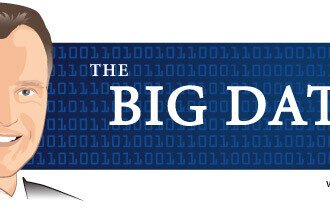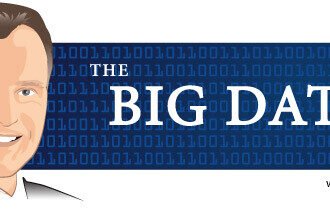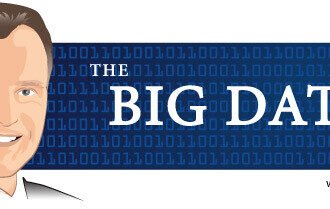
The Internet of Things (combined with big data) is reaching further into our lives every day. And while some of these innovations are just super cool, others may need to get the kinks ironed out before they become part of our everyday lives.

The Internet of Things (combined with big data) is reaching further into our lives every day. And while some of these innovations are just super cool, others may need to get the kinks ironed out before they become part of our everyday lives.
I just bought a new vacuum cleaner that will tell me how many calories I have burnt during cleaning or let me know how much energy I have saved… There are sensors you can buy to turn your home into a smart home, and when attached to apps, they can perform a command or send you a message when certain things happen, like turning on a light when it detects motion at the front door, or sending you a text message when the liquor cabinet is opened.
One of the really cool new things I have come across is a smart yoga mat: sensors embedded in the mat will be able to provide feedback on your postures, score your practice, and even guide you through an at-home practice.
The technology is ambitious — and only a prototype and concept at this point — but it shows how far the Internet of Things can take us in just the next few years.
Small data.
You may have seen the RFID tags you can attach to things like your phone, your keys, or your glasses, which can then help you locate those things when they inevitably get lost.
But suppose you could take that technology to the next level and create smart labels that could stick on practically anything. Plus, they can tell you a lot more than just where a thing is; they can tell you its temperature, the moisture level, whether or not it’s moving, and more.
Suddenly, this unlocks a whole new realm of “small data;” if big data is looking at vast quantities of information and analyzing it for patterns, then small data is about looking at the data for an individual product — say, a container of yogurt in a shipment — and being able to know if it’s likely to go off before it reaches the store.
This part of the Internet of Things holds incredible promise for improving everything from logistics to health care, and I believe we’re still just on the cusp of understanding what this incredible technology can do — as when electricity was only used to power light bulbs.
But what happens when your TV watches you?
OK, so the new Samsung TVs aren’t actually watching you, but they are listening. (Shades of Big Brother?)
Many people were shocked to learn that their new Internet-connected Samsung TV might listen to, record, and send their personal conversations — or whatever was happening in their living room — to a third party. But it’s right there in the privacy policy that comes with the set.
And Samsung isn’t the first; LG TVs were discovered to be collecting users’ viewing behavior in 2013.
Welcome to the Internet of Things.
As far back as 2010, Mattel got into some PR hot water when the FBI issued an alert about their “Video Girl Barbie” because the hidden camera in the doll could be used to record child pornography or otherwise violate a child’s privacy.
This year, the company plans to release an Internet connected Barbie doll that can have 2-way conversations with children. Because what could possibly go wrong with that??
Phillip K. Dick predicted this Internet of Things taken to extremes as far back as 1968, in his novel Ubik, in which a character must pay a doorknob to open the door — and then the door threatens to sue him for violating its service contract when he attempts to dismantle it.
As the Internet of Things evolves, so too our concepts of privacy and the rules that go along with them will need to evolve. But that may just be the price we pay for yogis built into our yoga mats and Internet enabled TVs.
As always, thank you very much for reading my posts. You might also be interested in my new book: Big Data: Using Smart Big Data, Analytics and Metrics To Make Better Decisions and Improve Performance
You can read a free sample chapter here.

For more, please check out my other posts in The Big Data Guru column and feel free to connect with me via:
Twitter, LinkedIn, Facebook, Slideshare and The Advanced Performance Institute.










